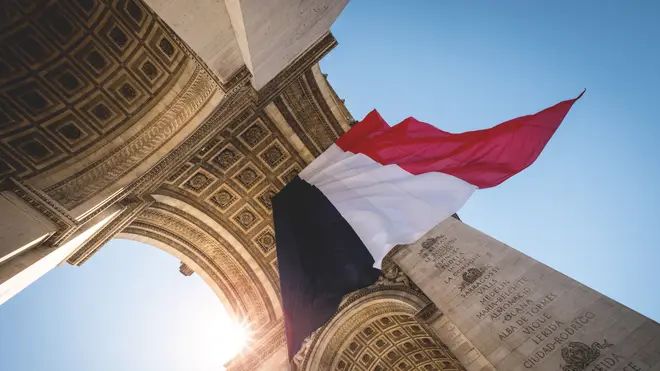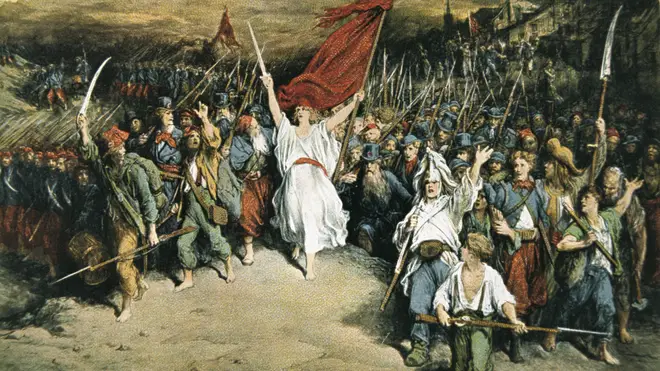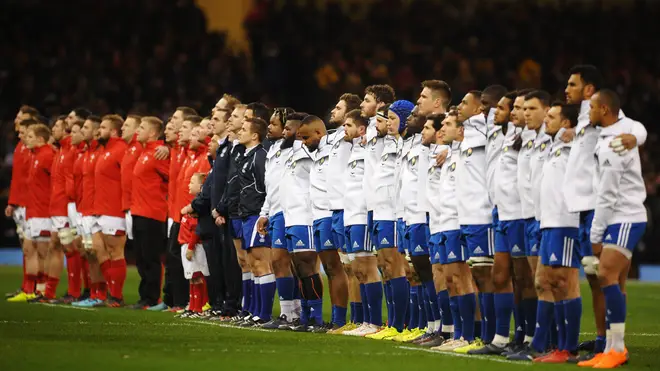On Air Now
Classic FM Breakfast with Tim Lihoreau 7am - 9am
14 July 2023, 12:14 | Updated: 18 September 2023, 16:27

Macron supporters sing 'La Marseillaise' after his 2022 re-election
Featuring some less-than-cheery lyrics about ‘watering fields with blood’, the words to the French national anthem are a little controversial.
One night during the French Revolution, after France declared war on Russia, young Claude-Joseph Rouget de Lisle composed the music and lyrics to La Marseillaise.
The young man, a captain of the engineers and an amateur musician, wrote the song in just a few hours and named it ‘Chant de guerre pour l’Armée du Rhin’ (War Song for the Rhine Army).
It acquired its nickname, ‘La Marseillaise’, when it was sung on the streets of Paris by volunteers from Marseille, who had marched to the capital. The song was officially named as the French national anthem in 1795 – and it quickly became the rallying call to the French Revolution.
Read more: What are the lyrics to the US national anthem, The Star-Spangled Banner?

The anthem’s somewhat violent lyrics reflect the invasion of France by Prussian and Austrian armies. The full version features seven verses – but at most sporting events, teams tend to sing just the first verse and chorus:
Allons enfants de la Patrie
Le jour de gloire est arrivé!
Contre nous de la tyrannie
L’étendard sanglant est levé
L’étendard sanglant est levé
Entendez-vous dans les campagnes
Mugir ces féroces soldats?
Ils viennent jusque dans vos bras
Égorger nos fils, nos compagnes!
Aux armes, citoyens
Formez vos bataillons
Marchons, marchons!
Qu’un sang impur
Abreuve nos sillons!
Read more: What are the lyrics to ‘God Save the King’, Britain’s national anthem?

Arise, children of the Fatherland
Our day of glory has arrived
Against us the bloody flag of tyranny
is raised; the bloody flag is raised.
Do you hear, in the countryside
The roar of those ferocious soldiers?
They’re coming right into your arms
To cut the throats of your sons, your comrades!
To arms, citizens!
Form your battalions
Let’s march, let’s march
That their impure blood
Should water our fields.


Mireille Mathieu singing La Marseillaise (with lyrics)
During the reigns of Napoleon Bonaparte, Louis XVIII and Charles X from 1804 to 1830, La Marseillaise was banned outright because of its Revolutionary associations – and it wasn’t officially reinstated as the national anthem of France until 1879.
But among composers, its popularity has been undeniable. Giuseppe Verdi quotes from the Marseillaise in his patriotic anthem Hymn of the Nations, which also incorporates the national anthems of England and Italy to show a unity between the nations.
Edward Elgar also uses it alongside ‘Rule Britannia’ in The Music Makers. Even The Beatles used it in the opening fanfare to ‘All You Need is Love’.
But the most famous classical use of the Marseillaise is in Tchaikovsky’s 1812 Overture, which commemorates the defeat of the French at the battle of Borodino. Listen from 5:25 and you can clearly hear fragments of the melody representing panicked and disorganised French troops being driven back by the flurry of Russian strings:

1812 OVERTURE, P. I. Tchaikovsky (Canons i campanar) - Banda Simfònica d'Algemesí